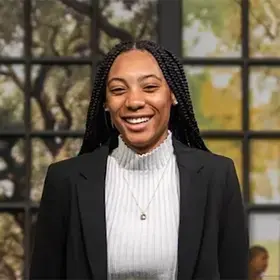Kira Peikoff is a student in Columbia University's Master of Science program in Bioethics. The author of two novels, Living Proof and No Time to Die, she is also an accomplished journalist and recently published articles on bioethics in The New York Times: "Fearing Punishment for Bad Genes" and "I Had My DNA Picture Taken, With Varying Results." Fascinated by the ethical questions that surround recent developments in health, she intends to use the knowledge from her coursework to inform her fiction and journalistic writing. We spoke with Peikoff about how she discovered the program, what she loves about it, and how her bioethics studies will enrich her writing.
Why did you choose to pursue your M.S. in Bioethics?
I knew for a long time, ever since I studied journalism in college, that I wanted my beat in journalism to cover the intersection of science and society and the ethical dilemmas posed by new technology and new developments. That had always fascinated me. But I didn't know that there was a name for that field and that it was a huge field and that you could study it.
What brought you to Columbia in particular?
Well, one day a couple of years ago, I was Googling to find out if there was a way I could pursue higher education in this area. I Googled biotechnology programs, but that wasn't exactly what I wanted because that was very heavily science-focused. And I'm interested in more of the political and societal issues arising from new developments. So as I was searching on the web, I came across Columbia's program. Dr. Robert Klitzman – who is the founder of the program – I emailed him right away. I said, "I'm a writer interested in exactly this area. I can't believe that this exists. I'd love to meet with you." And he was gracious enough to set up a meeting that week. I went in, talked to him, learned about the program, and I knew that was exactly what I wanted to do. I applied, got in, and started that way.
I just wanted to back up a second: Were you already writing about bioethics concerns?
Yeah, I was. I had already published a book in 2012 called Living Proof. It was a fictional look at the whole debate around embryonic stem cell research, but in the format of a thriller.
In what ways are you applying your bioethics knowledge? I saw that you've written for The New York Times, and you have another upcoming medical thriller. So what are you planning to do with your bioethics degree?
So I see myself as a writer for a lay audience, not an academic audience. I want to take these issues that I find very compelling and pressing – anything from stem cell research to questions around aging and death and genetics – and bring them to a wider audience and provoke real debate in society and try to figure out what are the best ways to approach answers, both in policy and in personal settings. So I hope that my bioethics degree will better inform me to do that and to make me a better writer with more expertise in this area.
What about the program's demands on your time? Are you also working, and how do you fit the program into your life?
I did the program part-time for the last year and a half – just two classes per semester – because I do write full-time. Right now, I'm actually under a deadline for my third book, which is due to my publisher in September. So I'm actually on a leave of absence this semester because I need every day to work on my manuscript. But I'm going to come back in the fall, and then I have one more year in the program.
Has there been anything that pleasantly surprised you about the program that you wanted to share?
Yeah, I love the program. I think it has been the best career decision I've made. Specifically, I just found myself blown away by the instructors. Each one has been so thoroughly informed about their fields – from clinical ethics to history to philosophy to neuroethics – they've all just brought so much insight and really careful knowledge and debate to each class. I felt like each lecture in and of itself was its own program. They're just so rich and packed with ideas and with debate. It's just a great program to be in.


